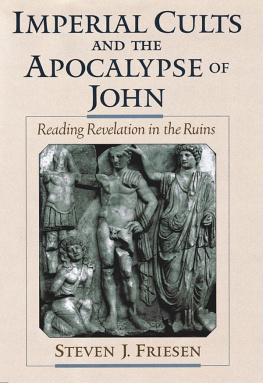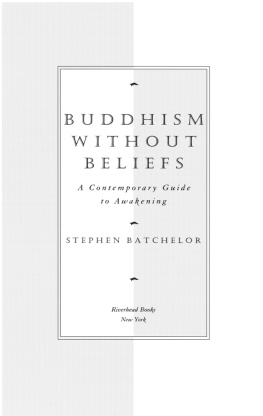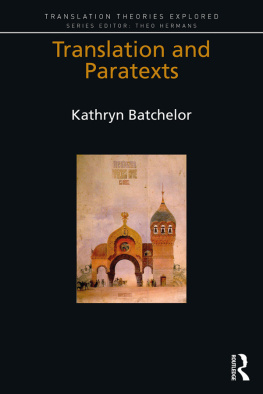Animal Cultus.
(A) BEAKS AND BEAR HUNTING.
The origin of bearsThe races of the bear and the sea lionThe marten and racoon as servants of the bearHunting bearsBears dens.
some of the Ainu supposed themselves to have been descended from bears, and it will be interesting, therefore, to inquire whence Bruin himself came. It is extremely curious to notice how these peculiar people imagine creatures of totally different form and nature to have been evolved and developed out of the same primal elements. The following legend goes to point out how it is supposed that bears and some of the demons came out of sparks, and that sea lions and whales developed themselves out of flints used for striking lights. It also tells us that these last-named creatures were originally intended to live on dry land, but that through quarrelling they were banished by God to the sea. Their fate, however, was not decided in an arbitrary manner, but was determined by a race. In the intimation of this fact we come upon a modified form of the doctrine of the survival of the fittest or strongest, for according to such people the strongest is supposed to be the fittest. The bear was permitted to reside upon dry land because he defeated his antagonist in a foot race:
LEGEND OF THE RACE OF THE BEAR AND SEA LION.
Many of the larger of the wild kind of animals, both of the sea and land, have the same origin as demons of disease. They came into the world in this way. Once upon a time, when they lived upon this earth, the deities had a great desire to smoke tobacco, and in order to procure a light got sticks of silver birch and rubbed them together. They rubbed and rubbed for a very long time, but instead of bright fire nothing came out but black and dull yellow sparks, quite incapable of making fire. No sooner did the black sparks appear than they at once turned themselves into bears, while the yellow ones became demons, which originate some kinds of illnesses.
This being the case the gods cast away the sticks and got flints and struck them together. These made bright sparks which very soon became fire. After they had finished their smoke, and were now about to return to heaven, they cast some of their flints into the sea and others upon the land. Those which fell on the dry ground became sea lions, while those which were thrown into the sea became great whales. Now it happened that the bears and sea lions were quite unable to live peaceably together, and spent their whole time in quarrelling, fighting, and tearing one another. God would not allow this to go on, and so, in order to determine which should live upon dry land and which be banished to the sea, he called them to him and told them to have a race to settle the matter. They came to the appointed place and strove hard for the mastery, but the bear won, and was therefore allowed to remain on the land, while the sea lion, as the vanquished one, was ordered to depart to the sea. This creature has never been at all satisfied with his lot, and therefore, sometimes even now comes to the sea shore, where he climbs upon the rocks and roars towards the mountains at his enemy the bear.

SPRINO-BOW, FOR KILLING BEARS.
The foregoing myth was told me by an Ainu fisherman who resided at that time upon the sea shore at Nikap. There are some rocks off the coast near his house which are frequented every winter by scores of large sea lions, some of which are from fifteen to twenty feet in length. These creatures often clamber to the top of the rocks, where they lie and roar terrifically. The noise they make is so great that it may be heard for several miles both along the coast and also inland among the mountains. The man explained to me that the roars are aimed at the bears, against which sea lions have a special hatred, as they can never forget their defeat in the race contest.
As bears are such great divinities they have of course their servants to wait upon them, and it is curious to remark that martens and racoons are considered to be such. This is to be gathered from the following legend.
LEGEND OF THE MARTEN AND RACOON.
The marten and racoon were both made by the Creator to act as servants to bears, and this is the reason why these little divinities reside in and about the dens of these deities. Their special duties are to act as cooks and drawers of water. Among them may be seen some with black faces. These are the cooks, and they get black through working among the cooking pots and kettles. The ordinary racoon is a very good deity indeed, and when a person intends to offer one in sacrifice he should send round to his friends and invite them, saying: The cook of the god of the mountains is about to be sent away, come ye and rejoice. Then when all the people have been assembled he should be sacrificed.
No doubt this is a curious bit of folk-lore, and somewhat fanciful, but I am of opinion that totemism lies at the foundation, for both the marten and the racoon are called deities and are worshipped like the bear and offered in sacrifice.
The wolf also may be regarded in the same light, for he is looked upon as the special friend of man when attacked by wicked bears. This fact comes out in the following lore, which the Ainu who told it me called
BEAK AND WOLF WORSHIP.
The most gentle and well-behaved bears are called Nufiuri koro kamui, i.e. the deities who possess the mountains. They have their home in the middle of the mountains and their garments (i.e. skins) are ornamented with stripes of gold, silver, and bronze. One must never fail to worship such gods. The most wild bears are called Nupuri-kesh-un-guru, i.e. persons who reside at the foot of the mountains, and they have their home at the bottom of the mountains. Their clothes are ornamented with stripes like blood-red thread. They are very wild and sometimes attack and slay people. Such bears should not be worshipped.
The divine wolf is clothed in white and has his home on the eastern side of the mountains. In the beginning he resided in Paradise, but having a great desire to live upon the earth he descended thence and took up his abode with the good bears. He is truly a most precious and brave divinity, and is, moreover, very quick in action. Now if a person is pursued by an evil bear he should call upon the wolf in a loud voice to come and help him. If he does so with a true heart, he will without fail come and kill the bear and thus deliver the man. Therefore the wolf is a divine being who ought to be worshipped.
In bygone years the Ainu considered bear hunting to be the most manly and useful way in which a person could possibly spend his time. It was certainly a very brave act to go and attack a bear with the very poor weapons the Ainu formerly used, and it must have been very exciting. Think, for instance, of attacking a she bear, which had her cubs with her, with nothing but a long knife and a bow with a few arrows. It is quite true that the latter were poisoned, but the poison takes time to work before its effects are felt ; and to wound a bear is no small matter at the best of times. Even a good shot, with a trustworthy rifle, a steady aim, and a cool head runs a great deal of risk in following a bear.
The people feel, even at the present time when they have guns, that a bear hunt is a great and serious undertaking, and before they set out always have a meeting of a few of the elders of their village for the purpose of asking the favour of the deities. They beseech the gods of the mountains to bring them upon the track of the game ; they ask the goddess of the rivers to preserve them from the water demons and to carry them safely over the ferries ; they request the goddess of the springs to nourish them when they drink ; and they beg the goddess of fire to comfort them, keep them from sickness, cook their food, dry their clothes, and warm their bodies. And wherever the hunters rest upon their journey they never neglect to make their













